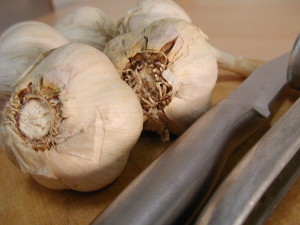You’re probably familiar with the benefits of intermittent fasting, such as weight loss and improved metabolism. But did you know that this type of fasting can also cause gout? In this article, we’ll explore how intermittent fasting can lead to gout and what you can do to prevent it.
What is Gout?
Gout is a form of arthritis that can cause pain, swelling, and inflammation in the joints. It is caused by the build-up of uric acid in the body. Uric acid is a waste product that is produced when the body breaks down purines. Purines are found in many foods, such as red meat, seafood, and beer.

Intermittent fasting is a dietary pattern where you cycle between periods of eating and fasting. During the fasting periods, you consume no calories. This can lead to weight loss and improved health.
However, there is some concern that intermittent fasting may trigger gout attacks. This is because when you fast, your body breaks down stored glycogen for energy. Glycogen is a sugar molecule that is stored in the liver and muscles. When glycogen is broken down, it releases uric acid into the blood.
If you have gout or are at risk for gout, it’s important to talk to your doctor before starting an intermittent fasting diet.
What is Intermittent Fasting?
Intermittent fasting is an umbrella term for various eating protocols that involve not eating for certain periods of time. There are a lot of different ways to do intermittent fasting, but the most common is the 16:8 method, where you eat for 8 hours and fast for 16 hours.
So, how does intermittent fasting cause gout? Well, when you fast, your body starts to break down stored glycogen for energy. Glycogen is a compound that is made up of glucose and is stored in the liver and muscles. When glycogen is broken down, it releases uric acid into the bloodstream.

Uric acid is the main culprit in gout attacks. It crystallizes in the joints and causes severe pain and inflammation. So, if you have high levels of uric acid in your blood, you are more likely to experience a gout attack.
Now, there are a few different theories as to why intermittent fasting may increase uric acid levels in the blood. One theory is that when you fast, your kidneys release more water than usual. This dilutes the uric acid in the blood and makes it more likely to crystallize in the joints.
How does Intermittent Fasting Cause Gout?
Gout is a form of arthritis that can cause severe pain, inflammation, and swelling in the joints. It most commonly affects the big toe, but can also affect the knees, ankles, elbows, wrists, and hands. Gout can be very painful and debilitating, making it difficult to walk or even stand. The symptoms of gout can come on suddenly and without warning.
There are a few things that can increase your risk of developing gout. These include:
* Family history of gout
* Eating a diet high in purines (found in red meat, seafood, and some vegetables)
* Drinking alcohol excessively
* Having certain health conditions, such as diabetes or high blood pressure
If you think you may be experiencing symptoms of gout, it’s important to see your doctor for a diagnosis. Treatment for gout can include medication to reduce pain and inflammation, as well as changes in diet and lifestyle.
Treatments for Gout
Gout is a form of arthritis that can be extremely painful. There are many treatments available, but one that is gaining popularity is intermittent fasting.

Intermittent fasting is when you eat all your meals within a certain window of time. For example, you may only eat between the hours of 12 pm and 8 pm. This means that you are fasting for 16 hours every day.
There is some evidence to suggest that intermittent fasting can help to treat gout. One study found that people who followed an intermittent fasting diet had lower levels of uric acid in their blood. This is important because high levels of uric acid can lead to gout attacks.
Another study found that people who followed an intermittent fasting diet lost weight and had lower levels of inflammation. Inflammation is thought to play a role in the development of gout.
If you are considering trying intermittent fasting to treat your gout, make sure to speak to your doctor first. This is especially important if you are taking medication for gout or have other health conditions.



 We’ve been led to believe by certain companies that we need an extra-special drink to recover from some sweat. First of all, there is a huge difference between athletes that work out hardcore for hours, and those dedicated to fifteen minute morning workout routines. Secondly, our bodies are smart, staying well hydrated and eating healthy is usually enough to maintain a balance of electrolytes.
We’ve been led to believe by certain companies that we need an extra-special drink to recover from some sweat. First of all, there is a huge difference between athletes that work out hardcore for hours, and those dedicated to fifteen minute morning workout routines. Secondly, our bodies are smart, staying well hydrated and eating healthy is usually enough to maintain a balance of electrolytes. 





 What happened above started out as one of those everyday kind of wounds that unfortunately became infected with a strain of staph bacteria called Methicillin-resistant Staphylococcus aureus, known to be particularly resistant to antibiotics. The photos took place in February but the antibiotic resistant infection broke loose in early December. “My son’s foot has been plagued with a MRSA infection and, Osteo Militias (bone infection). After 7 debridement surgeries in December, almost loosing his foot and three high powered prescription antibiotics for FOURTEEN weeks the wound still didn’t seem to be able to close. After one topical application.
What happened above started out as one of those everyday kind of wounds that unfortunately became infected with a strain of staph bacteria called Methicillin-resistant Staphylococcus aureus, known to be particularly resistant to antibiotics. The photos took place in February but the antibiotic resistant infection broke loose in early December. “My son’s foot has been plagued with a MRSA infection and, Osteo Militias (bone infection). After 7 debridement surgeries in December, almost loosing his foot and three high powered prescription antibiotics for FOURTEEN weeks the wound still didn’t seem to be able to close. After one topical application. 







